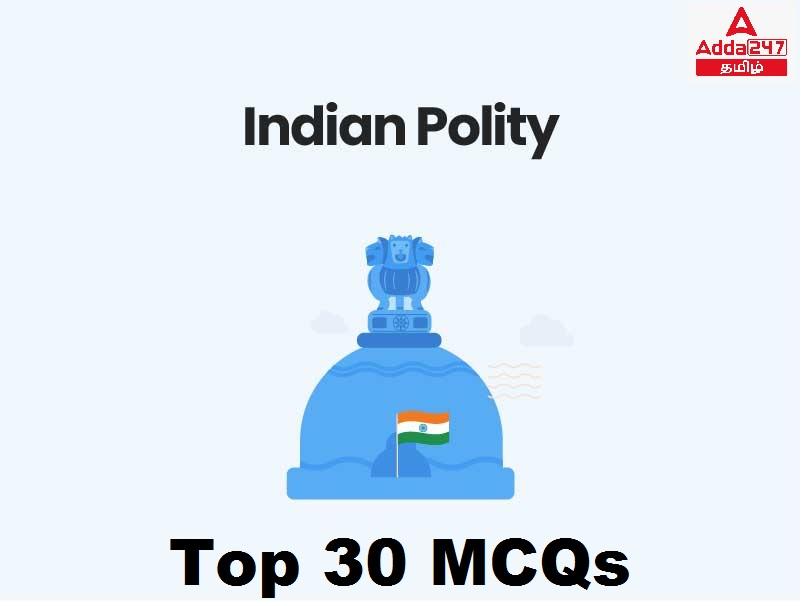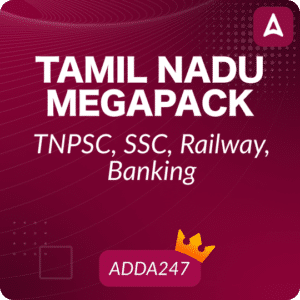பல்வேறு போட்டித் தேர்வுகளில் இந்திய அரசியலமைப்பு முக்கியப் பங்காற்றுகிறது, விண்ணப்பதாரர்களுக்கு அவர்களின் தயாரிப்பில் உதவ, நாங்கள் 30 கேள்விகளை (MCQs) தொகுத்துள்ளோம். உங்கள் இந்திய அரசியலமைப்பு அறிவை மேம்படுத்துவதற்கும், வரவிருக்கும் தேர்வுகளுக்கு உங்களை சிறப்பாக தயார்படுத்துவதற்கும் ஒவ்வொரு கேள்விக்கும் சரியான பதில் உள்ளது.
Q1. Which Prime Minister appointed the Sarkaria Commission in 1983 to make an inquiry into the Centre-State relations?
(a) Lal bahadur shastri
(b) Indira Gandhi
(c) Rajiv Gandhi
(d) Morarji Desai
Q2. Which year the official language act was enacted?
(a) 1951
(b) 1955
(c) 1963
(d) 1967
Q3. Match the following
- National Emergency – 1. Article 365
- State emergency – 2. Article 356
- Financial emergency – 3. Article 352
(a) a-1, b-2, c-3
(b) a-3, b-2, c-1
(c) a-3, b-1, c-2
(d) a-2, b-1, c-3
Q4. Choose the incorrect statement regarding emergency
(a) Emergency has been declared three times under article 352.
(b) For the first time, the President’s Rule was imposed in Punjab in 1951.
(c) In 1991, FInancial emergency declared
(d) None of these
Q5. Which Article deals with the powers of Parliament to amend the Constitution and its procedure?
(a) Article 368
(b) Article 362
(c) Article 370
(d) Article 366
Q6. Which amendment of the Constitution is known as the mini Constitution?
(a) 7th
(b) 42nd
(c) 44th
(d) 52nd
Q7. Who was the head of The National Commission to Review the Working of the Constitution?
(a) M.M.Punchchi
(b) Sarkaria
(c) M.N.Venkatachaliah.
(d) L M Singhvi
Q8. Which year the Government of India decided to create a new category of languages called “classical languages”?
(a) 2000
(b) 2002
(c) 2004
(d) 2008
Q9. The Union Executive consists of the
- President of India
- Vice-President of India
- Council of Ministers headed by the Prime Minister
- Attorney General of India
- Comptroller and Auditor General of India
(a) 1, 2, 3, 4
(b) 1, 2
(c) 1, 2, 3, 5
(d) 3 only
Q10. Choose the incorrect statement regarding the president of India.
(a) First citizen of India.
(b) Supreme commander of the armed forces.
(c) Constitutional head of the Union Executive
(d) The real executive of the Indian union
Q11. Choose the incorrect pair
(a) Rashtrapati Bhavan – New Delhi.
(b) The Retreat Building – Darjeeling
(c) Rashtrapati Nilayam – Hyderabad
(d) All the above
Q12. Choose those who do not participate in the presidential election.
(a) Elected members of both houses of Parliament
(b) Elected members of the states
(c) Elected members of National Capital Territory of Delhi and Puducherry.
(d) Nominated members of Parliament
Q13. Which article provides that the President has the power to grant pardons, reprieves, respites or remissions of punishment, or to commute the sentence of any person convicted of an offence?
(a) Article 72
(b) Article 53
(c) Article 61
(d) Article 63
Q14. Which states where the President’s Rule was imposed for a maximum number of times?
(a) Punjab and West bengal
(b) Kerala and Tamil Nadu
(c) Punjab and kerala
(d) West bengal and Uttar pradesh
Q15. Which one of the following is incorrect regarding the qualification of vice-president.
(a) He should be a citizen of India.
(b) He must have completed the age of thirty years.
(c) He must not hold any office of profit
(d) He should have the other qualifications required to become a member of the Rajya Sabha.
Q16. Which Chief Justice of India was appointed as President of India?
(a) Giani Zail Singh
(b) Zakir Hussain
(c) M. Hidayutalla
(d) None of the above
Q17. Choose the correct statement about function of Prime Minister
(a) The Prime Minister is the Head of the Cabinet
(b) Prime Minister supervises the work of various ministers.
(c) The Prime Minister act as the link between the President and the Council of Ministers
(d) All the above
Q18. Choose the incorrect statement.
(a) The ministers are classified under three ranks
(b) The council of State or Rajya Sabha consists of 250 members
(c) The President of India is the Ex-officio Chairperson of the Rajya Sabha.
(d) Maximum number of members can be elected for Lok Sabha is 552.
Q19. Choose correct regarding Elected members of the Parliament from Tamil Nadu.
- Rajya Sabha – 18 members
- Lok Sabha – 39 members
(a) 1 Only
(b) 2 Only
(c) Both are correct
(d) Both are incorrect
Q20. Choose incorrect statement regarding president
(a) The Lok Sabha is presided over by the ‘speaker’ who is elected by its members
(b) The Speaker vacate his office after the houses dissolved
(c) He has the power to decide whether a Bill is a Money Bill or an ordinary one.
(d) The Speaker presides over a joint sitting of the two Houses of Parliament.
Q21. Choose incorrect statements about Indian Judiciary.
(a) An independent and integrated judiciary
(b) Judiciary plays an important role in defending the rights and freedom of the citizens.
(c) Important role in analyzing and interpreting the necessities of laws and the constitution.
(d) Federal Court of India, established under the Indian Independence Act, 1947.
Q22. dispute between the Government of India and one or more States, come under which jurisdiction?
(a) Advisory Jurisdiction
(b) Original Jurisdiction
(c) Appellate Jurisdiction
(d) Miscellaneous Jurisdiction
Q23. The Supreme Court of India, New Delhi was inaugurated on ________.
(a) January 26, 1950.
(b) January 28, 1950.
(c) August 15 1947
(d) November 26 1949
Q24. Choose an incorrect statement about AGI.
(a) Article 76 has provided for the office of the Attorney General for India.
(b) He is the highest law officer in the country.
(c) He is appointed by the Prime Minister
(d) He holds office during the pleasure of the President.
Q25. The Constitution of Jammu and Kashmir was adopted on _______.
(a) January 26, 1950.
(b) November 26, 1950
(c) November 17, 1956
(d) January 26, 1957
Q26. Choose an incorrect statement about the governor.
(a) The Governor is the constitutional head of the state executive
(b) Separate Governors must be needed for each State.
(c) Article 154 vests the executive power of the State in the Governor
(d) The Governor of a State shall be appointed by the President.
Q27. Choose the incorrect statement regarding governor power.
(a) He appoints the Advocate – General of the state
(b) He appoints the leader of the majority party in the State Legislative Assembly as the Chief Minister of the State.
(c) He appoints and removes the Chairman and Members of the State Public Service Commission.
(d) He acts as the chancellor of universities in the state
Q28. Under which article the governor recommended to the President to impose President Rule in that State?
(a) Article 352
(b) Article 355
(c) Article 356
(d) Article 365
Q29. Who was the first chief minister of Tamil Nadu after independence?
(a) Thiru.O. P. Ramaswamy
(b) Thiru.P. S. Kumaraswamy
(c) Thiru.C. Rajagopalachari
(d) Thiru.K. Kamaraj
Q30. Choose incorrect statements regarding powers and function of the Chief Minister.
(a) He allocates the portfolios among the ministers.
(b) He advises the Governor in relation to the appointment of the Chairman and Members of the State Finance Commission
(c) He announces the government policies on the floor of the house.
(d) None of these
Solution
S1. Ans (b)
Sol.Late Prime Minister Indira Gandhi appointed the Sarkaria Commission in 1983 to make an inquiry into Centre-State relations. The Central government has implemented 180 (out of 247) recommendations of the Commission.
S2. Ans (c)
Sol.The First language committee was appointed in 1955. It submitted its report in 1956. As a follow up of the report, parliament enacted the Official Language Act, 1963.
S3. Ans (b)
Sol.National Emergency – Article 352
State emergency – Article 356
Financial emergency – Article 365
S4. Ans (c)
Sol.Under Article 352, Emergency has been declared three times so far: in 1962, 1971 and 1975.
For the first time, the President’s Rule was imposed in Punjab in 1951.
Financial emergency has not been declared in India so far.
S5. Ans (a)
Sol.Article 368 of the Constitution in Part XX, deals with the powers of Parliament to amend the Constitution and its procedure.
S6. Ans (b)
Sol.The 42nd amendment (1976) of the Constitution is known as the mini Constitution.
S7. Ans (c)
Sol.The National Commission to Review the Working of the Constitution was set up by a resolution of the Government of India in 2000 headed by M.N.Venkatachaliah.
S8. Ans (c)
Sol.In 2004, the Government of India decided to create a new category of languages called “classical languages”.
S9. Ans (a)
Sol.The Union Executive consists of the President of India, the Vice-President, and the Council of Ministers headed by the Prime Minister, and the Attorney General of India. The Legislature is known as the Parliament.
S10. Ans (d)
Sol.The President is the nominal executive authority. The chief executive of the Indian union is the President. He is designated as the First citizen of India. He is the supreme commander of the armed forces. The President is also the Constitutional head of the Union Executive.
S11. Ans (b)
Sol.Rashtrapati Bhavan – New Delhi.
The Retreat Building – Shimla
Rashtrapati Nilayam – Hyderabad
S12. Ans (d)
Sol.The Electoral College consists of the elected members of both houses of Parliament and the elected members of the states and elected members of National Capital Territory of Delhi and Puducherry.
S13. Ans (a)
Sol.Article 72 confers on the President power to grant pardons, reprieves, respites or remissions of punishment, or to commute the sentence of any person convicted of an offence.
S14. Ans (c)
Sol.Kerala and Punjab are the States where the President’s Rule was imposed for maximum number of times i.e., nine times in both States.
S15. Ans (b)
Sol.He should be a citizen of India.
He must have completed the age of thirty five years.
He must not hold any office of profit under the Union, State or local Government.
He should have the other qualifications required to become a member of the Rajya Sabha.
S16. Ans (c)
Sol.If the posts of President and Vice-President lie vacant, the Chief Justice of India works as President. This situation happened in 1969 when Chief Justice M.Hidayutalla was appointed as President of India.
S17. Ans (d)
Sol.The Prime Minister decides the dates and the agenda of the meeting of the Cabinet which he presides over.
The Prime Minister is the Head of the Cabinet and the other ministers are his colleagues.
The Prime Minister acts as the link between the President and the Council of Ministers.
The Prime Minister is the leader of the nation and chief spokesperson of the country.
S18. Ans (c)
Sol.The ministers are classified under three ranks
The council of State or Rajya Sabha consists of 250 members
The Vice President of India is the Ex-officio Chairperson of the Rajya Sabha.
Maximum number of members can be elected for Lok Sabha is 552.
S19. Ans (c)
Sol.Elected members of the Parliament from Tamil Nadu.
Rajya Sabha – 18 members
Lok Sabha – 39 members
S20. Ans (b)
Sol.The Lok Sabha is presided over by the ‘speaker’ who is elected by its members. The Speaker continues to be in the office even in the houses dissolved, till a new Speaker is elected by the new Lok Sabha. The Speaker presides over a joint sitting of the two Houses of Parliament. He has the power to decide whether a Bill is a Money Bill or an ordinary one. The decision of the Speaker on whether a Bill is a Money Bill is final.
S21. Ans (d)
Sol.The Supreme Court of India, New Delhi was inaugurated on January 28, 1950. It succeeded the Federal Court of India, established under the Government of India Act of 1935.
S22. Ans (b)
Sol.The first instance to the Supreme Court comes under original jurisdiction. These may be (i) dispute between the Government of India and one or more States of (ii) Dispute between two or more states (iii) the cases involving fundamental rights
S23. Ans (a)
Sol.The Supreme Court of India, New Delhi was inaugurated on January 28, 1950. It succeeded the Federal Court of India, established under the Government of India Act of 1935.
S24. Ans (c)
Sol.The Constitution (Article 76) has provided for the office of the Attorney General for India. He is the highest law officer in the country. He is appointed by the President. He must be a person who is qualified to be appointed the Judge of the Supreme Court. He holds office during the pleasure of the President. This means that he may be removed by the President at any time.
S25. Ans (c)
Sol.The Constitution of India grants special status to Jammu and Kashmir among Indian states, and it is the only state in India to have a separate constitution The Constitution of Jammu and Kashmir was adopted on 17 November, 1956 and came into force on 26 January, 1957.
S26. Ans (b)
Sol.The Governor is the constitutional head of the state executive. The administration of a State is carried on in the name of the Governor. Generally, there is a separate Governor in each State but if the situation warrants so, the same person may be appointed as the Governor of two or more States. Article 154 vests the executive power of the State in the Governor. The Governor of a State shall be appointed by the President.
S27. Ans (c)
Sol.Governor appoints the Advocate – General of the state. He appoints the leader of the majority party in the State Legislative Assembly as the Chief Minister of the State. He appoints the Chairman and Members of the State Public Service Commission. However, they can be removed only by
the president and not by a governor. He acts as the chancellor of universities in the state
S28. Ans (c)
Sol.under Article 356, the Governor recommended to the President to impose President Rule in that State.
S29. Ans (a)
Sol.Thiru.O. P. Ramaswamy 1947-1949
Thiru.P. S. Kumaraswamy Raja 1949 – 1952
Thiru.C. Rajagopalachari 1952 – 1954
Thiru.K. Kamaraj 1954 – 1963
S30. Ans (d)
Sol.He allocates the portfolios among the ministers. He advises the Governor in relation to the appointment of the Chairman and Members of the State Finance Commission. He announces the government policies on the floor of the house.
**************************************************************************
| Adda247 TamilNadu Home page | Click here |
| Official Website=Adda247 | Click here |




